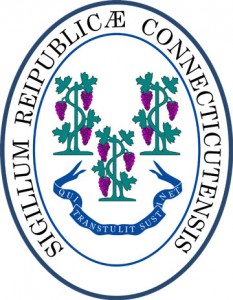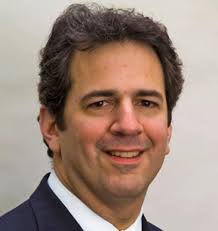All the key players in Connecticut finally butted heads in a showdown in Hartford yesterday. In one corner, you had the casino-ineligible Schaghticoke Tribal Nation.  Behind it was its patron, MGM Resorts International, which has a $950 million investment in Springfield, Massachusetts, it wants to protect. It also thinks that if a third casino in built in Connecticut, somebody — MGM? — should do it in the other part of the state. In the other corner was MMTC, the Mohegan Sun/Foxwoods Resort Casino joint venture that is trying to develop a casino in the greater Hartford area and stem the flow of gambling dollars to Springfield.
Behind it was its patron, MGM Resorts International, which has a $950 million investment in Springfield, Massachusetts, it wants to protect. It also thinks that if a third casino in built in Connecticut, somebody — MGM? — should do it in the other part of the state. In the other corner was MMTC, the Mohegan Sun/Foxwoods Resort Casino joint venture that is trying to develop a casino in the greater Hartford area and stem the flow of gambling dollars to Springfield.
In yet a third corner was Norwalk Rep. Chris Perone (D), who wants to throw a monkey wrench into the works by commissioning “a comprehensive study of gambling in Connecticut” to determine where a third casino would go best. (If want to slow things down, call for a comprehensive study.) Mashantucket Pequot Chairman Rodney Butler didn’t even wait for the legislative hearing to throw the first punch. “We know that we are going to lose thousands of jobs, hundreds of millions in revenue out of the state of Connecticut that are going to go over the border to Springfield. We don’t need any further analysis to tell us that,” he said.
Since Perone’s study wouldn’t need to be required to be finished before 2018, MGM Springfield would be open for business before MMTC could get their casino up and running, a process that is already taking longer than MMTC expected. “Our failure to square off against competition in Rhode Island and New York has led to a 30% reduction in slot revenue,” fumed Mohegan Tribal Council Chairman Kevin Brown.
In a pivot from previous statements, MGM said its opposition to the MMTC project doesn’t necessarily mean it covets a Bridgeport casino — at least not in the near term.  MGM has signed the Connecticut Center for Economic Analysis to perform its own economic-impact study of additional Connecticut casinos. The center’s director, Fred Carstensen, warned that the MMTC facility, with its quick-and-dirty emphasis on gambling per se was flying in the face of casino-industry trends and could become an economic “zombie.”
MGM has signed the Connecticut Center for Economic Analysis to perform its own economic-impact study of additional Connecticut casinos. The center’s director, Fred Carstensen, warned that the MMTC facility, with its quick-and-dirty emphasis on gambling per se was flying in the face of casino-industry trends and could become an economic “zombie.”
Throwing a further complication into the process, state Rep. Tony Hwang (R) called for any future study to take issues like problem gambling into account, saying, “If we have the opportunity to do it, why not be deliberate and do the entire package.” That sound you hear is Mohegan Sun and Foxwoods representatives groaning at the additional delay this would present. “This isn’t a simple decision, aside from having multiple studies, the complexity of the situation requires more study,” added Perone (above), showing that the outcome of the hearing, far from being a knockout, is going to be an extended series of grudge matches.
* Now that the Christmas tree that was the Florida Legislature’s version of the Seminole Tribe‘s new gaming compact with Gov. Rick Scott (R) has toppled, attention shifts to the courts. The tribe is seeking — as is the state — to delay a July trial over the legality of its continued operation of blackjack and baccarat. Although Scott has been supportive of the Seminoles lately, his administration is not backing down from its insistence that the tribe stop offering the games. And the Seminoles are just as insistent in continuing to offer them. The status quo is really a win-win for Scott: The Seminoles keep the games they most want and also continue making revenue-sharing payments to the state, even without a compact. As for the latter, if the Lege can’t get its act together and vote on the compact in a special session, that issue will also fall to the courts to decide.
* Pennsylvania may be the next state to legalize slot routes. A proposal to do so squeaked through the commonwealth’s House of Representatives by a three-vote margin. One spur to legalization is the black market in illegal video-poker machines that has arisen in the Keystone State. The poster boy for this idea is state Rep. Mark Gergely (D), who is under indictment for conspiracy, gambling and dealing in the proceeds of illegal activity, for allegedly using his influence to get slots placed in the Mon Valley area. Columnist Brian O’Neill argues that the black-market slot industry hasn’t dented casino profits, so why not legitimize it? (Then-Gov. Ed Rendell pushed a similar idea but would have granted a monopoly to a chosen operator, which killed the concept.)
O’Neill points to Illinois as a role model, pointing to the $228 million in state taxes and $43 million in municipal revenues it has made off of slot routes. That’s without the Chicago market, by the way. “A state that has contemplated raising the sales and income taxes should first be sure it isn’t bypassing hundreds of millions of dollars in revenue there for the taking,” O’Neill writes, although he opposes putting potential slot routes into the hands of existing casino owners. However, as a revenue-creation device it beats regressive tax increases any day.

